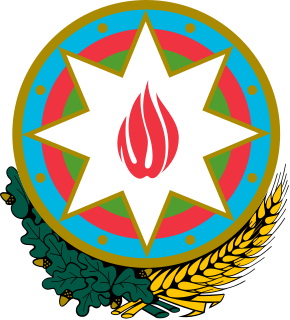
The Government of the Republic of Armenia or the executive branch of the Armenian government is an executive council of government ministers in Armenia. It is one of the three main governmental branches of Armenia and is headed by the Prime Minister of Armenia.

The Constitution of the Italian Republic was enacted by the Constituent Assembly on 22 December 1947, with 453 votes in favour and 62 against. The text, which has since been amended sixteen times, was promulgated in an extraordinary edition of Gazzetta Ufficiale on 27 December 1947. The Constituent Assembly was elected by universal suffrage on 2 June 1946, on the same day as the referendum on the abolition of the monarchy was held, and it was formed by the representatives of all the anti-fascist forces that contributed to the defeat of Nazi and Fascist forces during the Italian Civil War. The election was held in all Italian provinces. The Constitution was drafted in 1946 and came into force on 1 January 1948, one century after the Constitution of the Kingdom of Italy, the Statuto Albertino, had been enacted.
The National Research Council is the largest research council in Italy. As a public organisation, its remit is to support scientific and technological research. Its headquarters are in Rome.

The National Economic and Development Authority is an independent cabinet-level agency of the Philippine government responsible for economic development and planning. It is headed by the president of the Philippines as chairman of the NEDA board, with the Secretary of Socioeconomic Planning as vice-chairman. A number of Cabinet members, the Governor of the Bangko Sentral ng Pilipinas, the Chairperson of the Metropolitan Manila Development Authority, the Chief Minister of Bangsamoro, the Secretary of Information and Communications Technology, the Chairman of the Subic–Clark Area Development Corporation, and the National President of the Union of Local Authorities of the Philippines are members of the NEDA Board.

Government procurement or public procurement is the procurement of goods, services and works on behalf of a public authority, such as a government agency. Amounting to 12 percent of global GDP in 2018, government procurement accounts for a substantial part of the global economy.

The Republic of Cameroon is a decentralized unitary state.
All European countries show eGovernment initiatives, mainly related to the improvement of governance at the national level. Significant eGovernment activities also take place at the European Commission level as well. There is an extensive list of eGovernment Fact Sheets maintained by the European Commission.

The Ente Nazionale per l'Aviazione Civile (ENAC), English: Italian Civil Aviation Authority, is the civil aviation authority of Italy. Its headquarters are located in Rome. Legislative Decree no.250/97 established the existence of ENAC on 25 July 1997. It is the equivalency of the United States Federal Aviation Administration.

The Ministry of Culture of Azerbaijan Republic is a governmental agency within the Cabinet of Azerbaijan in charge of regulation of the activities and promotion of Azerbaijani culture. The ministry is headed by Anar Karimov.

The State Committee for City Building and Architecture is a governmental agency within the Cabinet of Azerbaijan in charge of regulating the urban construction and development and overseeing architectural activities in Azerbaijan. The Committee is headed by Anar Guliyev.

The Ministry of the Presidency, Relations with the Cortes and Democratic Memory (MPR) is the department of the Government of Spain which assures the link between the different Ministries and the Prime Minister and is responsible for the relations between the Government and the Parliament. This department also supports The Crown in the exercise of its functions.

The Ministry of Civil Services is the governmental body in the Sultanate of Oman responsible for all matters relating to government employees under the civil service system.

The State Procurement Agency is an independent legal entity of public law (LEPL) in Georgia that provides oversight to ensure the legitimacy of government procurement procedures by establishing policies for the regulation of the procurement process.
The Ministry of Justice of the Republic of Uzbekistan,, is the central government body charged consistent implementation of a single state policy in the sphere of lawmaking and law enforcement practice in Uzbekistan.

The Ministry of Finance is an Indonesian government ministry responsible for the nation's finance and state assets. The Finance Minister is responsible to the President. The ministry's motto is Nagara Dana Rakça, which means "guardian of state finance".

The General State Administration is one of the Public Administrations of Spain. It is the only administration with powers throughout the national territory and it is controlled by the central government.

The Main Directorate of Special Programs of the President of the Russian Federation, abbreviated as GUSP is a federal executive agency that performs functions to ensure the fulfillment of the authority of the President of the Russian Federation in the field of mobilization training and mobilization in the Russian Federation. The scope of their competence is described in the Federal Law "On Mobilization Preparation and Mobilization in the Russian Federation."

The Under-Secretary of the Presidency, officially Under-Secretary of the Presidency, Relations with the Cortes and Equality is the most senior civil servant of the Ministry of the Presidency of Spain.

Small Business Development Agency of the Republic of Azerbaijan(SMBDA) is a public legal entity that supports the development of micro, small and medium businesses (SMB) in Azerbaijan, and provides support and a range of services to entrepreneurs, as well as coordinates and regulates public services in this area.
The National Institute for Safety and Health at Work is an autonomous agency of the Government of Spain. The INSST is considered a technical-scientific agency entrusted with the task of analyze and research on safety and health conditions at work, as well of promoting and supporting the improvement of them, in order to achieve a decrease in occupational hazards, work accidents and occupational diseases.















